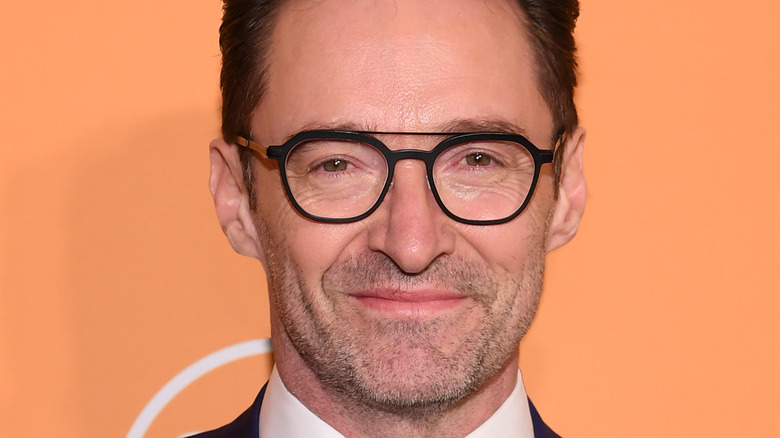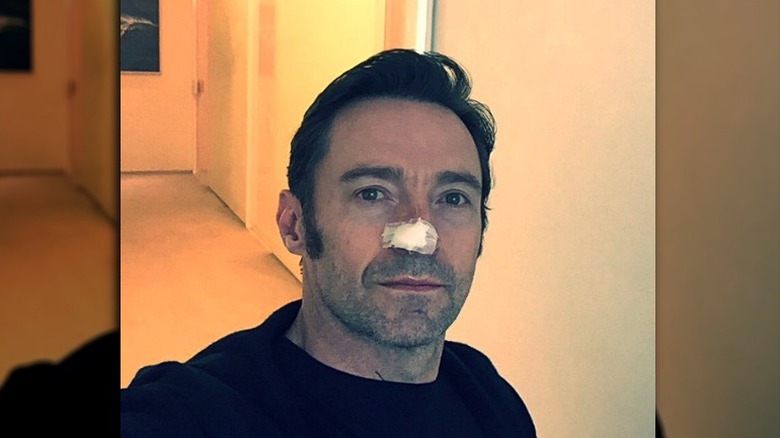The Truth About Hugh Jackman's Skin Cancer
Hugh Jackman is using his platform to raise awareness about an issue that is near and dear to his heart. The 52-year-old actor has had a history of dealing with skin cancer, reportedly even having been treated for it six times before, per the Daily Mail. Despite the frequency at which his skin cancer has recurred, luckily for Jackman, he has been treated for basal cell carcinoma, which is said to be the least dangerous of the skin cancers, per skincancer.org. This type of skin cancer, which are often referred to as BCCs, grow slowly, making them a very curable type of skin cancer, and they are said to cause a minimal amount of damage when caught and treated early.
But BCC should be taken just as seriously as another cancer, which is exactly why Jackman has taken to social media to spread awareness about the disease, as well as share his experience dealing with it. In February 2020, he shared a video to Instagram where he shared an update regarding his "three month checkup," with a caption that read, "REMINDER: Get your skin checked. I'm all clear. Make sure you are too."
So where does the actor stand as of today with his health?
Jackman warns, wear sunscreen
On August 2, Hugh Jackman took to Twitter to share that his doctors spotted an irregular-looking spot on his nose that they opted to take a biopsy of, per Today. This particular area of his nose appears to be the area that the skin cancer regularly returns to. Back in 2017, he posted a selfie with a bandage on his nose captioned, "Another basal cell carcinoma" (via Twitter).
Our most recent update came on August 9, when Jackman checked in again, via Instagram, to share an update regarding his skin cancer biopsy. "It's come back 'inconclusive,'" the actor wrote, explaining that this means the doctors didn't sample to make any solid conclusions. "When I'm done filming, I'll have it rechecked. I know I'm repeating myself and will probably not stop ... please get skin checks and wear sunscreen," Jackman warns.
While Jackman asserts that he and his doctors are especially worried, BCC should be treated with the utmost severity. "Basal cell carcinoma is not something to be taken lightly," says Deborah S. Sarnoff, MD, president of the Skin Cancer Foundation. "Once you've been diagnosed with a BCC, it's very likely that you will develop more over the years, leading to continuous treatment and possibly even disfiguration," she says, per skincancer.org.
The Mayo Clinic suggests that the best way to reduce risk of BCC is to avoid the sun when it's at its hottest, wear sunscreen year-round, avoid tanning beds, and most importantly, always consult your doctor if you have concerns.

